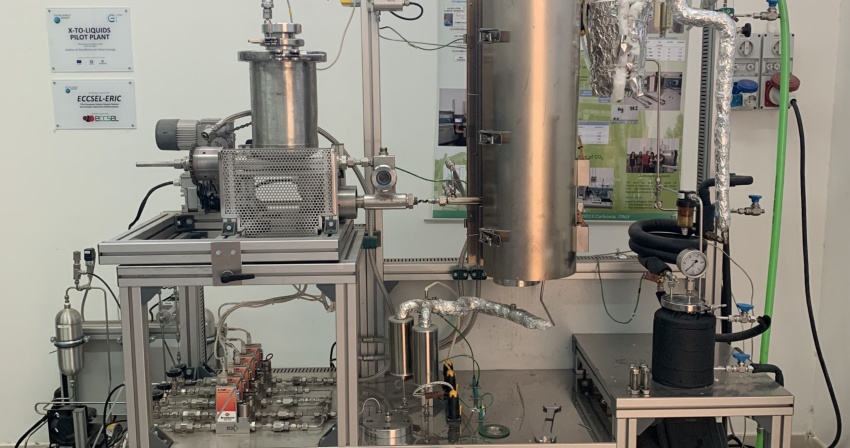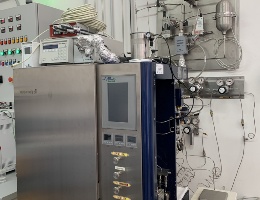Experimental activity of CO2 conversion into renewable fuels
CEEP (Centro Eccellenza sull’Energia Pulita - Clean Energy Centre of Excellence) research activities in the field of carbon dioxide reuse technologies.
Date:
31 August 2021
The conversion of CO2 into renewable fuels represents one of the very few available solutions for the decarbonization of a sector such a transport, which nowadays is responsible for about a quarter of anthropogenic greenhouse gas emissions into the atmosphere. If, in fact, for cars, battery-powered electric motors are by far the most promising solution for the coming decades, the same can’t be said for heavy transportation (starting with the air and naval sectors), for which battery-powered electric power is today unthinkable.
In this regard, the most promising solution to the problem of CO2 emissions in transport is provided by so-called e-fuels: hydrogen, methanol, methane, dimethyl ether, diesel and many other fuels obtained from excess electricity from renewable sources and carbon dioxide captured directly from air or from industrial plants that still use fossil fuels. These can provide an alternative to batteries for powering light vehicles and, most importantly, they can intervene – by exploiting, among other things, pre-existing infrastructures – in the heavy road transport sector and in air and sea transport, which nowadays are considered among the so-called “hard-to-abate”, meaning the sectors for which it is technically difficult to reduce carbon dioxide emissions with conventional techniques.
Sotacarbo’s research activity, in addition to the development of specific technologies (explained in the following sections), is oriented towards the analysis of e-fuels production technologies (methanol, dimethyl ether, methane and hydrogen in primis) as a whole, with particular reference to commercial prospects and technical-economic system modelling.
To this end, the Carbonia research centre has a dedicated experimental laboratory, which includes a benchtop system (named X-to-Liquids and part of the ECCSEL-ERIC European network of laboratories of excellence) for the synthesis of liquid fuels (methanol, dimethyl ether etc.) from CO2 through catalytic hydrogenation processes. The system is integrated with a bench-scale system for boiling fluidized bed gasification of biomass, capable of providing a synthesis gas that can also be converted into renewable fuels through catalytic processes.
Last update
06/11/2024, 12:03


